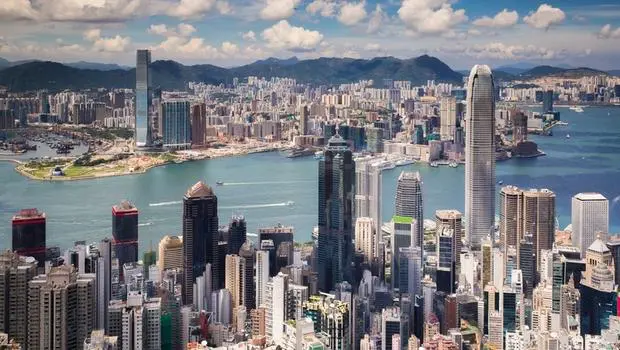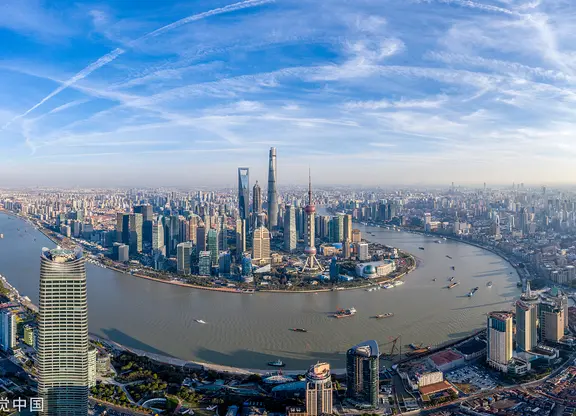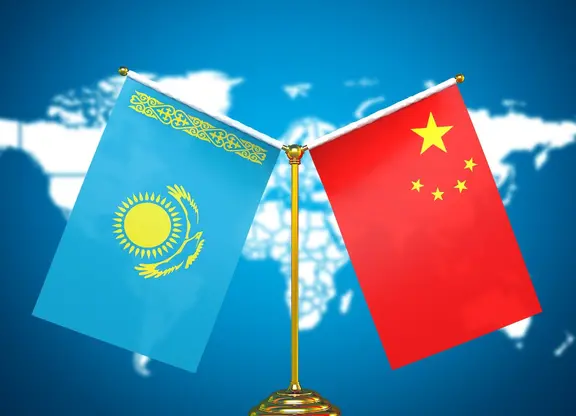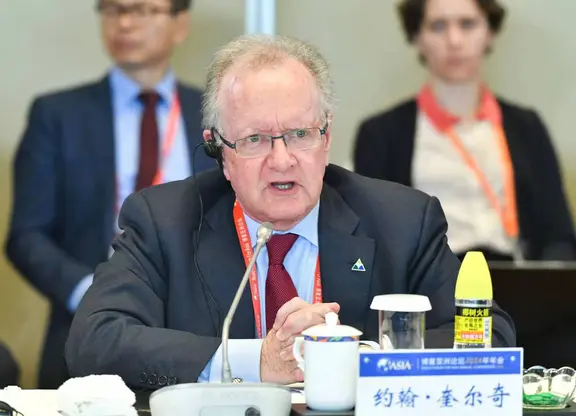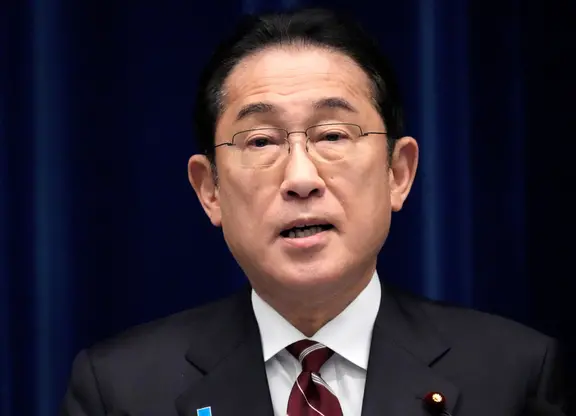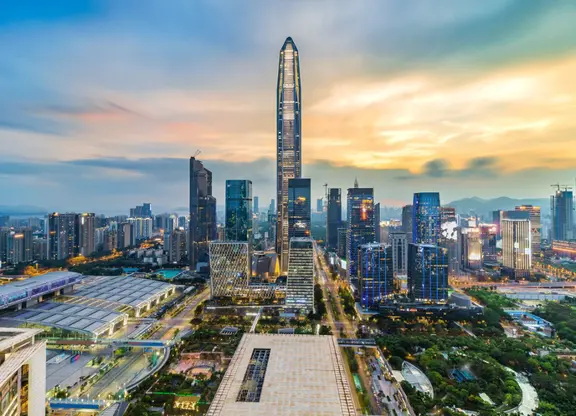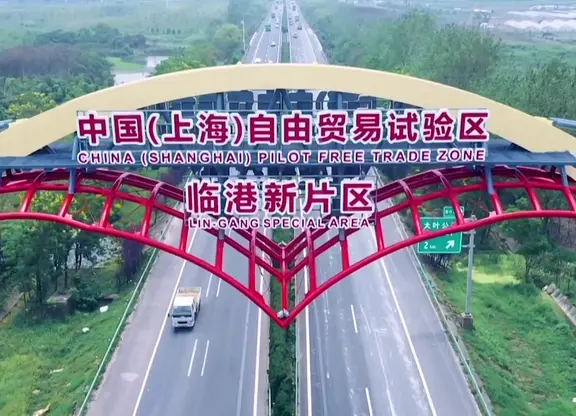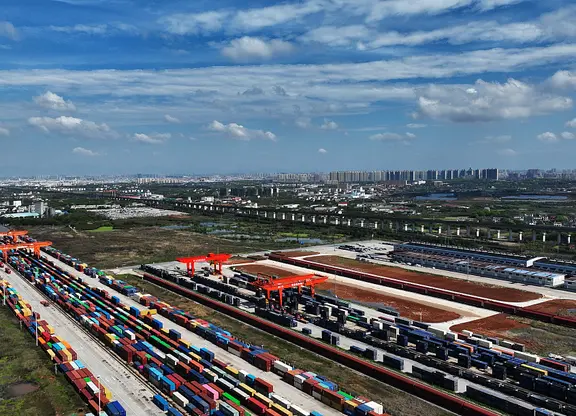Yang Hanxin
(The author is Chairman of Xinhua Chinese Association in Britain)
At midnight of June 30, 1997, a world-renowned power transferring ceremony was held by the Chinese and British governments at the Hong Kong Convention and Exhibition Center. At 23:59, the flag of the United Kingdom and the British colonial flag of Hong Kong were lowered, marking the end of one century and a half of British colonial rule over Hong Kong.
At 00:00 on July 1, the Chinese national flag and the Hong Kong Special Administrative Region (SAR) regional flag were raised, marking Chinese government’s resumption of the exercise of sovereignty over Hong Kong.
Hong Kong’s return to the motherland finally wiped out the century-long national humiliation.
Back 25 years ago when I saw the very moment of Hong Kong’s return to the motherland on TV, I burst into tears, with the lyrics of the “Pearl of the Orient” echoing in my ears, "...every tear as if it all says about your dignity. Let sea tides accompany me to bless you. Please don't forget my forever never changing yellow face..."
The United Kingdom fought the first Opium War in June 1840. The defeated Qing Dynasty (1644-1911) was forced to agree to a series of humiliating conditions in order to end the war. It signed the Treaty of Nanjing in August 1842 and ceded the island of Hong Kong to Britain. China also leased the New Territories, together with 235 islands, to Britain for 99 years according to the Convention for the Extension of Hong Kong's Territory signed in Beijing in June 1898. China’s century of humiliation began with the Opium War and the British occupation of Hong Kong, thus Hong Kong’s return to the motherland marks China’s wiping out a century of national humiliation.
After its return, Hong Kong implements the principles of "one country, two systems", "Hong Kong people administering Hong Kong" and a high degree of autonomy.
Over the past 25 years, Hong Kong has become a bridgehead for China to know more about the world, to attract foreign investment and to connect with the world, and plays a big role in the country’s reform and opening up.
After experiencing twists and turns in recent years, Hong Kong’s situation has gradually improved. The new SAR government will officially take office on July 1. The next five years will be a critical period and a new journey for Hong Kong to transform from effective governance to greater prosperity.
The Guangdong-Hong Kong-Macao Greater Bay Area serves as a new driving force for China's economic growth and a new fulcrum for the country’s integrating with the global economy. It reflects China's strategy of expanding new space for economic development with the city cluster as the main body, which will surely inject new vitality into Hong Kong's development.
Compared with world’s other bay areas, the Greater Bay Area features institutional diversity and complementarity. Hong Kong is the world’s fourth largest international financial center. It has clear advantages in scientific research and in setting up a financing platform for technology companies. It can conduct cooperation with companies in the Pearl River Delta region and draw on their strengths.
In the 2017 SAR Government Policy Address, Chief Executive Carrie Lam emphasized the Government’s commitment to promoting the development of innovation and technology in an all-round way and injecting new impetus into the economy. We expect that under the leadership of the new Chief Executive John Lee Ka-chiu, Hong Kong will play a bigger role in the construction of the Guangdong-Hong Kong-Macao Greater Bay Area, continuously consolidate its existing advantages, so as to achieve mutual complementarity and coordinated development with other cities, create more opportunities for young people. Hong Kong will attract and promote the flow of talents, technologies and capital, give full play to its advantages in financing environment and innovation capabilities, and better integrate into the Greater Bay Area through extensive consultation, joint construction, shared benefits. With the high degree of marketization and internationalization, it will serve as an important window and fulcrum for connecting with the global economy in the country’s further reform and opening up.
Hong Kong's rule of law, openness, low-tax business environment, advanced infrastructure, numerous professional talents, diverse and inclusive culture and other advantages are still there, but it’s also constrained by a number of barriers such as a large population, a limited city area, and a lack of manufacturing industries. But relying on the Greater Bay Area and the city cluster, Hong Kong will see a big improvement in an all-round manner by better leveraging its unique advantages.
Late Chinese leader Deng Xiaoping's great vision of "one country, two systems" and its successful practice in Hong Kong have laid a solid foundation for the great cause of Chinese national reunification. Today's Hong Kong is more stable than ever before. We firmly believe that under the principle of "one country, two systems" and the construction of the Greater Bay Area, Hong Kong, boasting unique advantages, will definitely have a better future!
(ASIA PACIFIC DAILY)
 简体中文
简体中文

